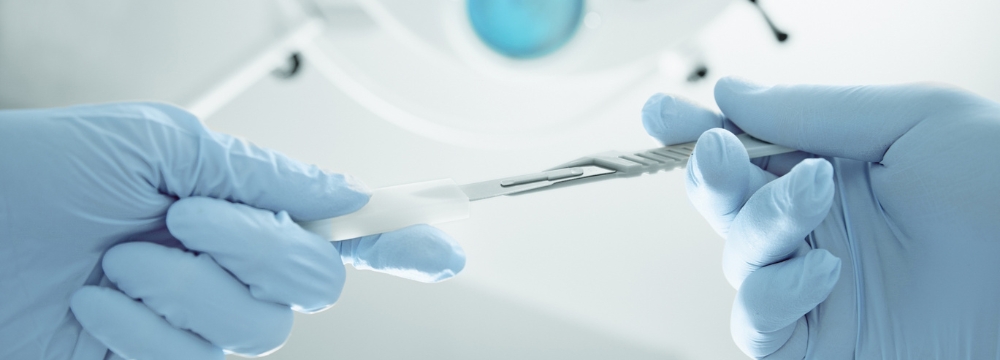
While vasectomies remain one of the most performed procedures at our practice and other urological surgery practices around the country, men in the US don’t see vasectomies as routine birth control like many in Europe and other industrialized nations. As such, many patients are concerned about having a vasectomy and what it means for their sexual health and, frankly, manliness. With these questions swirling around, there are bound to be misconceptions, which we will address in this article. Importantly, it’s worth remembering that if you and your partner are looking for permanent birth control solutions, a vasectomy is much less invasive and disruptive to a man than a tuba ligation is to a woman. So, with that, here are some of the most common misconceptions about vasectomy and the truth about what you should expect.
Myth #1: You Won’t Get Hard
Losing an erection, known as erectile dysfunction, can be one of the most concerning sexual events that a man experiences. ED is ubiquitous in the United States and worldwide because it is, in essence, a vascular problem. As we age, our vascular system becomes less efficient. This, along with atherosclerosis, or the narrowing of arteries due to plaque buildup, can cause reduced blood flow to the penis. However, a vasectomy has nothing to do with blood vessels and does not involve any of the nerves of the penis. Therefore, if you are dealing with erectile dysfunction, you should visit Dr. Natale to understand the cause.
Myth #2: You Can Still Get Your Partner Pregnant
If you search for vasectomies online, you will almost certainly read stories of how someone became pregnant even after their partner had a vasectomy. As such, this is not quite a myth but certainly requires more discussion. The issue revolves around when, and not so much if, a vasectomy is effective. Vasectomies are over 99% effective, and the likelihood of a failed procedure by an experienced vasectomy specialist like Dr. Natale is virtually nonexistent. However, in rare cases, the vas deferens may regrow, providing sperm to the ejaculate. More commonly, however, men who have vasectomies begin sexual activity before sperm has been thoroughly flushed from their system. This takes about 15-20 ejaculations, and the lifecycle of sperm is about six weeks. Therefore, we always encourage our patients not to have unprotected sexual activity until they return to our office six to 12 weeks after the procedure to check their semen for sperm.
Myth #3: Pleasure Will Be Reduced
A vasectomy does not affect the pleasure you will experience during sexual intercourse, and Vasectomies do not interfere with nerves that produce the pleasure sensations in the penis. As such, this is a myth, and if there is any lack of pleasure or success, it is likely due to psychological or other physical causes, which should warrant a visit to your urologist and men’s health specialist.
Myth #4: Vasectomies Cause Weight Gain
We are unsure where this myth originated, but vasectomies most certainly do not cause weight gain. Weight gain can result from one of several things, including metabolic disease, poor dietary habits, and low testosterone. However, vasectomy does not affect the testes’ ability to produce testosterone.
Myth #5: It Will Be Excruciating
You may be surprised at how little pain you will experience during and after your vasectomy. To be sure, there will be some discomfort, and this usually comes from a few things. First, you will feel a pinch when we inject the anesthetic into the surgical area. You will then feel some pulling sensations as we separate the vas deferens. After surgery, you may feel some discomfort from the swelling and inflammation associated with the procedure. Modern-day vasectomies do not require the incisions that they used to and, as such, are significantly less painful. Most of the pain you experience due to a vasectomy can be well managed with over-the-counter pain medication.
Bonus Myth: You Will No Longer Ejaculate
While a vasectomy does affect the composition of ejaculation (there will no longer be sperm), it does not change the look or volume, appreciably, of your semen. The goal of a vasectomy is to remove sperm from semen and not to stop ejaculation entirely. Some procedures, including in-office or surgical interventions for benign prosthetic hyperplasia, or BPH, can cause retrograde ejaculation, and most patients receive these treatments around the age as their vasectomy, so be sure to speak to Dr. Natale about the side effects of other procedures you may be scheduled for.
The Bottom Line
A vasectomy does not change your sex, life, or sexual ability other than virtually eliminating the likelihood of future pregnancy. However, patients who want to reverse their vasectomy have options. Microsurgical advances have allowed specialized urologists to perform vasectomy reversals that are most effective within ten years of the original vasectomy.
In the meantime, you can have confidence in the experience of thousands of vasectomies performed over the years by Dr. Natale. For any other questions or concerns, we encourage you to contact our office and schedule a consultation. Dr. Natale can put your fears to rest and offer answers to your most pressing questions.



